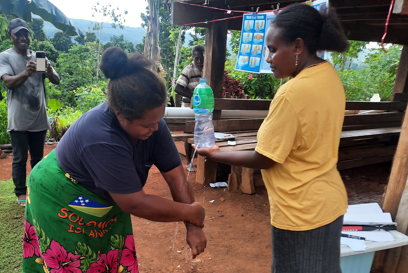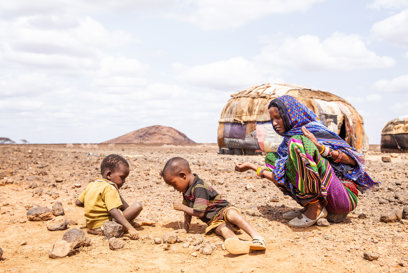We are living in a world where poverty rates are rising for the first time in 25 years. Coupled with the pandemic, we find ourselves in an incredibly challenging space in the social sector, where fatigue and burnout are becoming increasingly commonplace.
At Caritas Australia, our work is always about serving the poorest and most marginalised but more than ever, our staff are seeing and feeling the devastating impacts of the pandemic on these communities around the world.
When we are exposed to suffering on a daily basis, it can be hard to maintain a healthy level of optimism, to shrug off that overwhelming sense of negativity.
As a CEO, I strive to be constructively optimistic and instil this hopeful attitude in my team. While we acknowledge the hardships going on around us, we choose to act upon those needs based on what we have in our power to do.
Soon after graduating, I found myself at the age of 20-something, on an old Russian helicopter flying over Timor Leste, not long after its independence. Looking out the window, seeing the whole country either decimated or on fire, I had this moment, wondering how on earth this country would ever rebuild and function again. Then I thought to myself: my goodness, people are expecting me to help with this solution? What can I possibly offer?
I realised then that to change the world, you just have to do your little bit and it didn’t matter that this was an overwhelming situation. So I put my head down and helped in one little community. The experience taught me that you just need enough people doing exactly that to make a difference in the world.
As individuals, we can often get stuck “naval gazing” at the task before us. The magnitude of need and suffering can harden us or paralyse us as individuals from seeing benefit in us doing anything at all. But I like to remind my staff of the power of good that comes from a collective with a global mission.
Whether they are answering phones, fixing computers, generating funds or accompanying our partners, each one of them is bringing light to the world at a time in which it is so desperately needed.
This is where constructive optimism is needed. Blind optimism that chooses to only see the best, often leads to the preservation of self at the expense of others. We must continue to be aware of the hardship and unmet needs of others around us, so that we can strive to do something about it. But this must be coupled with constructive optimism that recognises that you have taken steps to make a difference.
To do this, you need to recognise that you are ultimately not responsible for the overall outcome – you are only responsible for the part you play.
So take some time to reflect on what you are able to achieve. And when you reach that goal, let the satisfaction of that spur you on to keep going, and to keep making a difference.
As someone who is always looking forward, I find living in the present moment difficult. Staying in the present though, is one of the most powerful strategies for staying positive and for completing tasks.
When I am feeling particularly overwhelmed, I remind myself to find the light in the shadow. It’s about seeking out the possibilities for our organisation to enact change and to do this as a team, with a shared vision.
I believe that as an organisation, Caritas Australia works with constructive optimism. When we go into a community, we work alongside the locals, look for their strengths, then provide support to help them implement their own solutions. We find the light in the shadows, we focus on the task at hand and bit by bit, empower each community to build a more hopeful future.
This article was first published in Pro Bono Australia.
Kirsty Robertson is Caritas Australia's CEO.

















